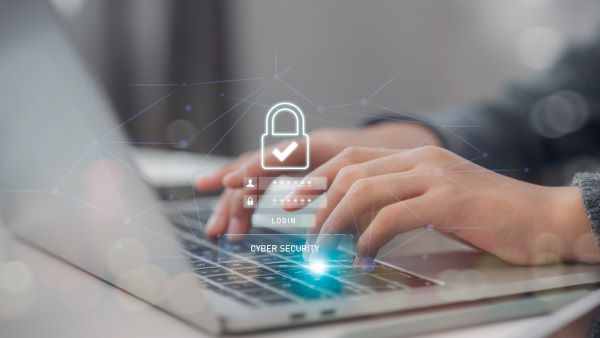October 15, 2024

Cybersecurity Awareness Month, observed every October, is a collaborative effort to raise awareness about the importance of cybersecurity. Launched in 2004 by the U.S. Department of Homeland Security and the National Cyber Security Alliance, this initiative aims to educate individuals and organizations on how to protect their digital lives.
At Farm Credit East, we support this effort and believe cybersecurity education is essential for maintaining a safe and secure digital environment. By staying informed about the latest threats and best practices, our customers can better protect their personal information and avoid falling victim to cyberattacks.
We are committed to providing awareness of common online threats like fake emails (phishing or spoofing), harmful software (malware), and trickery (social engineering), as well as providing the resources and support you need to understand and navigate these challenges.
What is Email Spoofing?
Email spoofing is a technique where attackers forge the sender’s address to make an email appear as if it comes from a trusted source. This deception is often used in cyberattacks to trick recipients into taking harmful actions, such as transferring funds to fraudulent accounts.
For example, attackers might impersonate a vendor or company executive and send fake invoices, request your personal information, send urgent payment requests, or request payments to be sent to a different account. Cybercriminals are leveraging generative AI to create more convincing phishing emails. This technology helps them craft personalized and sophisticated messages that can bypass traditional security measures.
How to Detect Email Spoofing
It is important to always check the sender’s email address carefully. Look for slight variations or misspellings that could indicate a spoofed email. If in doubt, contact the sender through a different communication channel to confirm the email’s authenticity. Below are a few tips on what to look out for when engaging with an email:
- Unusual Sender Address:
- Check the sender’s email address carefully. Spoofed emails often come from addresses that look similar to legitimate ones but may have slight variations (e.g., john.doe@farmcrediteast.com vs. john.doe@farmcediteast.com – note the ‘r’ is missing credit).
- Unexpected Requests:
- Be wary of emails requesting urgent actions, such as transferring funds or providing sensitive information.
- Generic Greetings:
- Legitimate emails from known contacts usually address you by name. Be cautious of emails with generic greetings like “Dear Customer” or “Hello.”
- Spelling and Grammar Errors:
- Many spoofed emails contain spelling and grammatical mistakes. Professional organizations typically have well-written communications.
- Suspicious Links or Attachments:
- Hover over links to see the actual URL before clicking. If it looks suspicious or doesn’t match the context of the email, don’t click it. Similarly, be cautious with unexpected attachments.
- Unusual Tone or Language:
- If the email’s tone or language seems off or uncharacteristic of the sender, it might be a spoofed email.
If you see anything unusual, like an email asking for your password, asking you to change where you typically send your payments, or someone requesting access to your account, please report it right away. Prompt reporting helps us respond quickly to potential threats, minimizing damage and preventing further incidents. By staying vigilant and proactive, you play a key role in maintaining a secure digital environment. This helps protect your information and makes the internet safer for everyone within our Farm Credit community.
To read more about Farm Credit East’s commitment to your information security visit our Information Security page.
Our Commitment to Information Security




